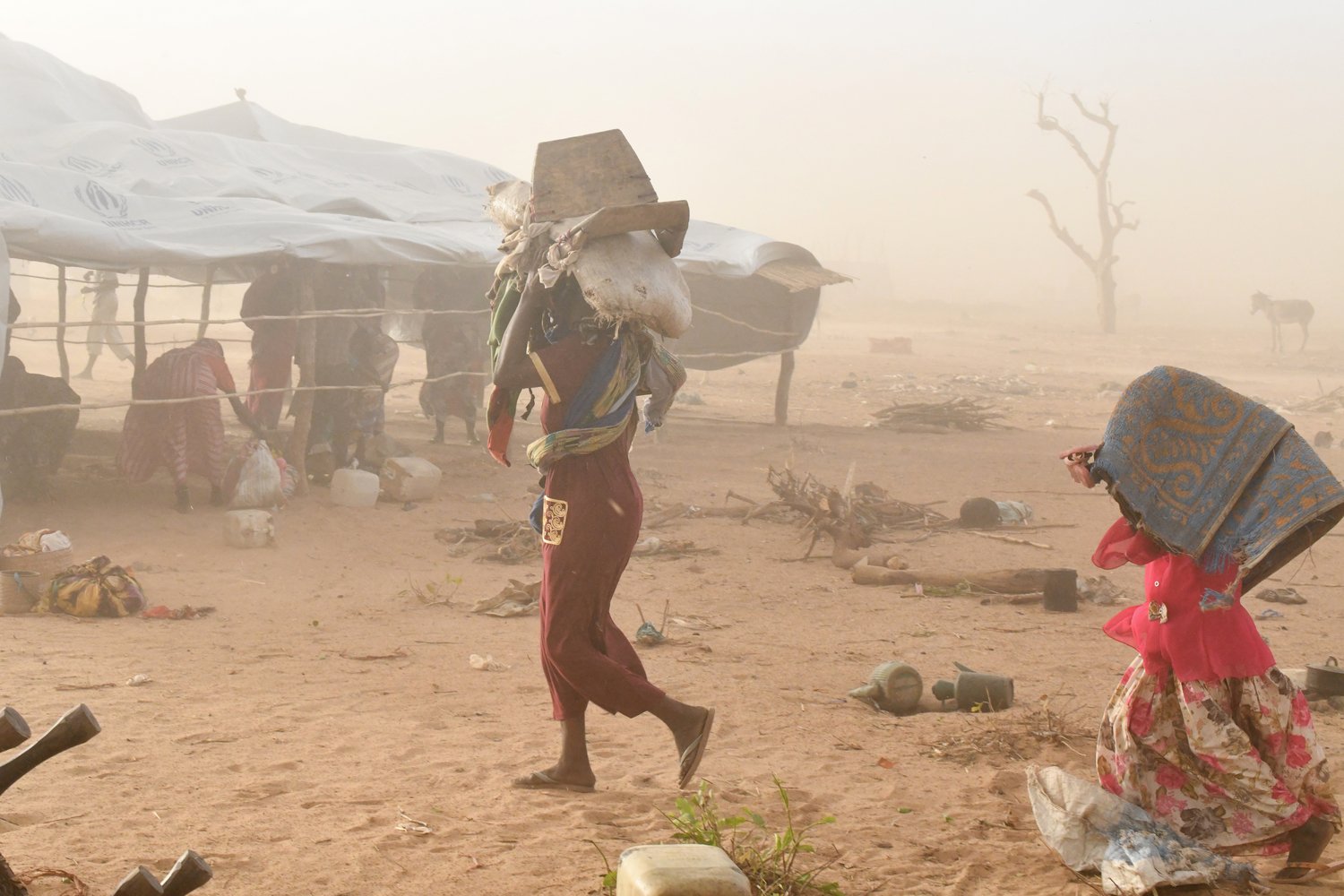Second day of interviews with detained Sudanese in Egypt
Second day of interviews with detained Sudanese in Egypt
UNHCR staff are now in a second day of interviews for more than 600 Sudanese who have been held in three detention centres on the outskirts of Cairo since last week. The Sudanese were detained by Egyptian authorities after their three-month sit-in protest in a Cairo park ended tragically last Friday in a confrontation that left several people dead and injured.
Egyptian authorities, who have announced their intention to deport some of the Sudanese, have given UNHCR three days to assess the legal status of the detainees and their possible need for international protection. A total of 22 UNHCR staff in three teams began work at 10 a.m. yesterday (Thursday) in three detention centres on the outskirts of Cairo. They worked into the evening last night and resumed the interviews again this morning.
More UNHCR staff are on their way from Geneva to Cairo to help with the interviews and to support our office's work there. We are going to do our best to get these interviews completed as soon as possible to ensure that everyone in need of protection gets it.
Earlier in the week, authorities released most of the Sudanese initially detained who were holding UNHCR cards identifying them as either refugees or asylum seekers. UNHCR and its partners have been providing assistance to them in various Cairo locations, including a church in the Sakakini district where a medical clinic was set up over the weekend to treat the injured. UNHCR also delivered medical supplies to the clinic, along with 1,160 blankets. More than 580 medical cases have been seen by medical staff at Sakakini since the night of 31 December. Cases of fractures, shock and trauma have been referred to the Italian Hospital in Cairo.
UNHCR also began a project Wednesday to provide a one-time emergency housing allowance to benefit any homeless families who participated in the demonstration.
The one-time grants are being distributed with the assistance of the NGO Caritas, through four branches of a local bank.
UNHCR is also identifying other vulnerable cases and on Thursday began distributing food parcels that included milk, sugar, rice, lentils, cooking oil and other items. The refugee agency is also working on family tracing to reunite any families that have become separated








